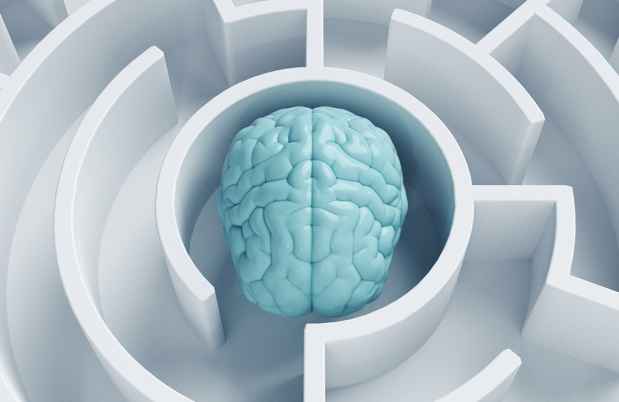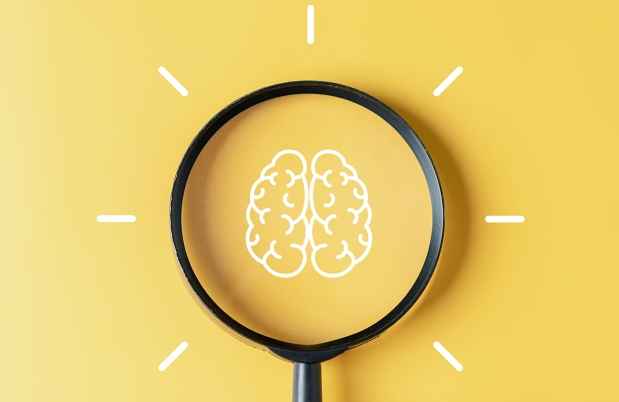Depression 101
Available with English captions and subtitles in Chinese, Hindi, and Spanish.
Depression is often described by folks experiencing it as a sadness that encompasses your life, impacts your day-to-day activities, and limits your functioning as you’d normally want to. It’s a condition known for its feelings of hopelessness and often worthlessness—and is misunderstood by many as something “you can snap out of.”
Depression comes in many forms, can be short-lived or long-lasting, and can affect people of all ages, genders, races, and socioeconomic backgrounds. So how can we better understand ways to support ourselves and others through depressive periods? And when should we reach out for help?
Audience Questions
Christian A. Webb, PhD, explains the intricacies of depressive disorders, shares signs and symptoms that may point to depression, and answers audience questions about how to make it through darker days.
- What is depression, and how severe is it?
- What are some of the more common symptoms of depression?
- Can depression be caused by environmental or situational factors (i.e. the pandemic, climate change) as well as biological factors?
- Is there a difference between situational depression and other types of depression?
- What is the difference between feeling depressed and an official diagnosis of depression? Have diagnoses of depression increased in recent years?
- How does bipolar depression differ from clinical depression?
- How common is depression in children and adolescents?
- Can you expand on depressive presentation in youth?
- Is there a connection between compulsive digital consumption (video gaming, social media use, etc.) and depression?
- Have you found any trends or research with teens choosing to self-medicate (marijuana, alcohol, etc.) versus being consistent with taking a prescribed medication for their depression?
- Have you found that talk therapy apps have been beneficial for people to enroll in therapy, versus trying to get them into a clinical setting?
- Can you speak at all to the known impacts of crisis lines on depression for teens?
- What are the treatments for depression, especially for teens?
- What can we do to help a teen that is depressed but can’t get into see a therapist? How can a parent help at home?
- Do you have advice on how to help depressed teens that have trouble concentrating?
- Are there some people that are more likely to be diagnosed with depression than others?
- How can you tell if depression is causing another illness, or if an illness is causing depression?
- Is depression a lifelong condition, or can someone be considered “recovered” from depression?
- How do meditation and mindfulness tools help relieve depression? How much practice is necessary for relief?
- Can you speak to treatment methods such as ketamine, TMS, and other emerging modalities?
- What role does sleep, nutrition, exercise play in treatment for depression?
- How can untreated depression impact a person as they get older?
- Do you have advice on helping teens who are vulnerable to depression and have difficulty connecting with peers?
- How can the pandemic and school closures contribute to depression and regression in kids with ASD and ADHD? Do you have advice for how parents can help?
- How can I talk to my doctor about the way that I’m feeling, especially if I think I’m depressed?
- Has the terminology surrounding depression changed over the years? Depending on the provider, “dysthymia” has been mentioned, but it’s not as commonplace as it used to be.
- Do you have advice for how to respond to a patient who is severely depressed but refuses help?
- Do you have advice for a depressed patient who has a difficult time identifying the source of their depression?
- Can you discuss depression in the elderly? Does it worsen with age, even if it’s been treated?
- How can I approach the topic of depression with a loved one who I think might be struggling with depression?
- What are some ways we can lessen the impact of the pandemic on our mental health?
- Any resources, tools, or workbooks that you’re familiar and would recommend with that can help someone—either a loved one or themselves—navigate depression and/or supplement therapy?
The information discussed is intended to be educational and should not be used as a substitute for guidance provided by your health care provider. Please consult with your treatment team before making any changes to your care plan.
Resources
You may also find this information useful:
- Everything You Need To Know About Depression
- 988 Suicide & Crisis Lifeline
- Crisis Text Line
- International Association for Suicide Prevention
- Division 12: Psychological Treatments by Diagnosis
- The Feeling Good Handbook – by David D. Burns, MD
- Mind Over Mood – by Dennis Greenberger, PhD, and Christine A. Padesky, PhD
About Dr. Webb
Christian A. Webb, PhD, is an associate professor of psychology in the Department of Psychiatry at Harvard Medical School and director of the Treatment and Etiology of Depression in Youth (TEDY) Laboratory at McLean Hospital. He completed both his pre-doctoral clinical psychology internship and a NIMH Individual National Research Service Award (NRSA) post-doctoral fellowship at Harvard Medical School and McLean Hospital.
Dr. Webb has received several early career awards for his work on the treatment of depression, including from the American Psychological Association and the Association for Behavioral and Cognitive Therapies.
Learn more about Dr. Webb.
More Webinars
It’s important to think about ways to manage your mental health. McLean is committed to providing mental health and self-care resources for all who may need them. You and your family may find these strategies from McLean experts helpful to feel mentally balanced in your everyday lives.
Sign up now for the next webinar in our Mental Health Webinar Series.
Originally aired on January 20, 2022



